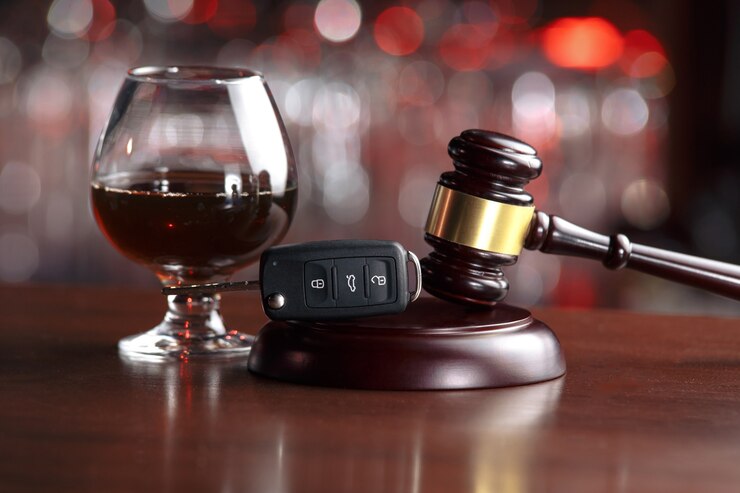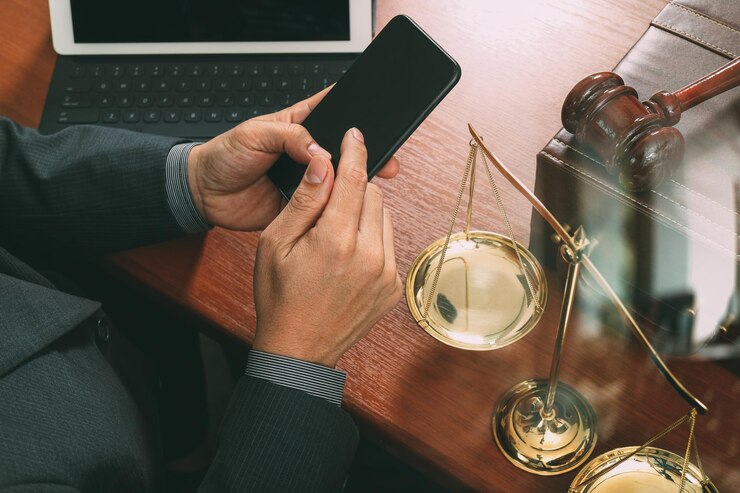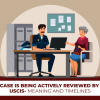
Being on trial for driving while intoxicated (DWI) is a stressful and nerve-wracking thing. The effects of the convictions are serious and have a substantial impact, which includes fines, driving license suspension, and even imprisonment. Besides, it can also cause more expensive insurance rates and a lifelong criminal record.
During these difficult periods, the help and advice of an experienced DUI attorney become more apparent.
A great lawyer is a blessing in your case because he or she can either aid you in the complicated legal procedures or represent your rights in court.
This article will demonstrate the key part of a lawyer in directing you in legal matters. Moreover, you will be able to learn from the experiences of other students and find the information that you will need to advocate for yourself.
Understanding DUI Charges

What exactly does influence mean? It simply means driving a vehicle while influenced by alcohol or drugs. As per the DUI attorney at Hanauer Law, being pulled over by the police for a routine traffic violation can be stressful. This is especially true if it’s your first time dealing with the charges. Also, depending on the situation, you could face misdemeanor or felony charges.
In such situations, an attorney’s role is crucial for ensuring your rights are protected and providing you with expert legal guidance. As mentioned above, they can help you understand the charges against you, explore potential defenses, and advocate on your behalf in court.
Additionally, an attorney can negotiate with prosecutors to potentially reduce charges or penalties—let’s understand this thoroughly.
The Role of an Attorney
- Protection of Rights: An attorney ensures your rights are protected. They make sure you have legal representation, protect you from self-incrimination, and challenge any unlawful actions by the authorities.
- Knowledge of the Law: Laws can be complex. Professionals understand them inside out. They know what defenses to use, what evidence to challenge, and how to deal with the legal system effectively.
- Mitigating Consequences: If you’re found responsible, a lawyer can help reduce the impact. They might negotiate reduced fines or suggest alternatives like community work. They’ll also aim to protect your driving privileges, which are crucial for work and family duties.
- Emotional Support and Guidance: Going through a case can be stressful. Your attorneys provide emotional support and guidance. They explain what’s happening, advise you on what to do, and help you make informed decisions.
Legal Strategies in DUI Defense

When facing DUI charges, a skilled attorney will employ various legal strategies to defend your case effectively. Here are some common strategies:
Challenging Legality: Your attorney may challenge the legality of the traffic stop or arrest. Suppose law enforcement officers didn’t have probable cause to stop your vehicle or lacked sufficient evidence to make an arrest. In that situation, your lawyer can argue that any evidence collected due to the unlawful stop or arrest should be excluded.
Doubting Test Results: Cases often rely on evidence such as breathalyzer or blood test results. However, these tests aren’t infallible and can be subject to errors or inaccuracies. Your attorney may challenge the reliability or validity of these test results by questioning the calibration of testing equipment, the qualifications of the individuals administering the tests, or the handling of test samples.
Offering Other Reasons: Your lawyer may present other explanations for your behavior or the circumstances surrounding your arrest. For example, they may argue that medical conditions or fatigue caused symptoms mistaken for intoxication or external factors. That includes weather conditions or road hazards that contribute to your driving behavior.
Understand this: Every case is different. These are some of the strategies used by the lawyers to defend the case. Your lawyer may or may not use them, depending on your case.
Choosing the Right Attorney

When it comes to selecting the right DUI attorney, it is essential to consider several factors to ensure you have the best representation possible. The following are some points to consider:
- Specialization: Look for an attorney who specializes in DUI defense. They have the expertise and experience needed to handle the complexities of the cases effectively.
- Qualifications and Experience: Check the lawyer’s qualifications, certifications, and years of experience, specifically handling cases. Experience matters when it comes to defending against the charges.
- Reputation: Consider the attorney’s reputation within the legal community and among past clients. Positive client reviews and referrals can indicate trustworthiness and reliability.
- Communication: Choose a lawyer who communicates well and makes sure you understand and are with them at every stage of the process. Keep them informed until the whole process is finished. The main factor that makes a great lawyer is effective communication, so they can be informed of their opinions and have no misunderstandings with their lawyers.
- Resources and Support: Evaluate the resources and the backing the attorney has for the situation and their firm. A good legal team can give a lot of help in the process of readiness of a case in your defense.
- Fee Structure: Carefully put the lawyer’s bills from the beginning and make them go along with your budget and what you anticipate. The clause of the costs should be transparent so that there are no forgotten surprises in the future.
- Personalized Approach: You should find a lawyer who tailors the case to your needs, taking into account your individual situation and objectives.
Conclusion
DUI cases can have always-lasting and very serious consequences. It is essential to have legal advice to help you navigate the complicated aspects of these cases. Selecting the proper lawyer is of utmost importance as they protect your rights and give you the necessary aid throughout the legal procedure. Be aware that every case is different. Hence, you should look for a lawyer who has a good track record, a lot of experience, and good communication skills for the best results.
Read Also:
- Injured on Someone Else’s Property?
- Things You Need to Prove that Negligence Led to Your Personal Injury











0 Reply
No comments yet.